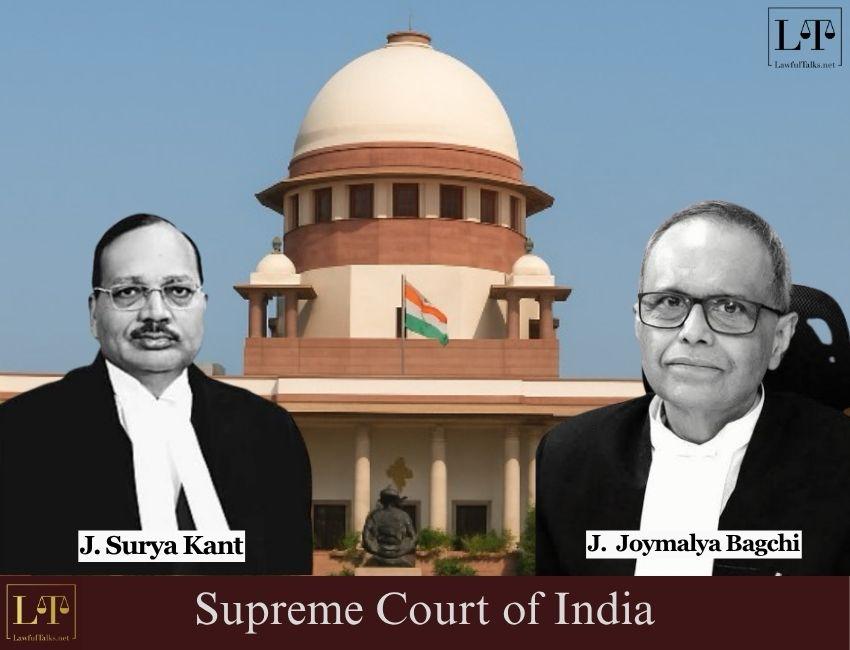Allahabad HC Sets Aside Afzal Ansari's Conviction, Allows Him to Continue as MP

The Supreme Court, led by Justice Surya Kant and Justice Joymalya Bagchi, has taken an important step to improve transparency and accountability in the judiciary. The Court suggested that every High Court should set up a public dashboard on its official website showing key judgments timelines, such as the dates of reservation, pronouncement and upload.

The initiative aims to make this information easily accessible to the public and to set up an open, automated system to track how efficiently the judiciary delivers its judgments.
Justice Surya Kant emphasized the importance of this transparency by stating, "Let everybody know that in this High Court, how many judgments have been reserved by any xyz and how many of them have been pronounced, and within how many days those have been pronounced. This information should be automated, available in public domain. How many pronounced after 6 months and how many are awaiting pronouncement after 6 months, and most importantly how many days it took in uploading the judgments. Is the judgment, after pronouncement, readily available on the website?"
Justice Bagchi added, "That will show the transparency and the accountability of the judiciary to the people."
Background:
This directive stems from concerns about judgments pending for an excessive time, particularly highlighted by the Jharkhand High Court's delay in pronouncing judgments reserved before January 31, 2025.
The Supreme Court had earlier instructed Registrar Generals of all High Courts to submit reports on such delayed cases by May 5, 2025. While some High Courts complied by filing affidavits, others have yet to do so, prompting the bench to demand compliance within two weeks and warning that non-compliant Registrar Generals may be required to appear personally.
Additionally, after reviewing a report submitted by Amicus Curiae Fauzia Shakil, the Court directed all High Courts to file:
-
Affidavits detailing the systems they currently use to make judgment dates public.
-
The affidavits must also include information on judgments reserved after January 31, 2025, their pronouncement and upload dates, suggestions to improve transparency, and any challenges expected in making this information publicly available.
The court further specified the particulars to be included in these affidavits as follows:
-
Existing mechanism evolved by them to bring in public domain the dates when a judgment is reserved, pronounced and uploaded on website;
-
Details of the judgments reserved after 31 January 2025 and the dates of their pronouncement till 31 October 2025, alongwith the dates when they were uploaded on website;
3. High Courts may also give their suggestions for improvement and for uniform pattern of disclosure of information to the general public in respect of subject issue and the difficulties/adverse consequences, if any, which HCs might be apprehending to experience in the event of such information being brought into public domain."
The Apex Court expects these affidavits within four weeks, noting that some High Courts have shown remarkable progress in this regard.
Case Detail: PILA PAHAN@ PEELA PAHAN AND ORS. Versus THE STATE OF JHARKHAND AND ANR., W.P.(Crl.) No. 169/2025

Anam Sayyed
4th Year, Law Student
Latest Posts
Categories
- International News 19 Posts
- Supreme Court 390 Posts
- High Courts 383 Posts



















































































































































































































































































































































































































































































































































































































































































































































































































